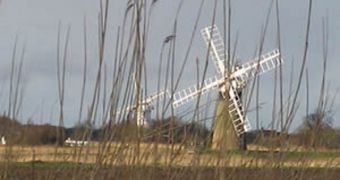A new study reveals that Norfolk and Suffolk Broads are more biodiverse habitats that biologists previously thought. It seems that these areas, occupying approximately 0.4% of UK's entire surface, are the natural home of 66 species that can be found only in this region. Also, researchers are now excited to say that the two countries also shelter 31 animals that can rarely be spotted in other locations across Britain.
It seems that a natural ensemble of factors made 97 rare creatures remain in this area. Biologists talk about a winning combination between the presence of water and the humid pet soils. Also, in this case, human intervention appears to be crucial and beneficial, as people value this area and do everything in their power to preserve its balance, by monitoring water levels, digging drains and peat when necessary, according to The Telegraph.
In order to be more conclusive, the study is based on data gather from experts and amateurs since the 17th century. Due to this fact, some of the unique creatures found don't have a common name, as they were recorded by their latin denomination.
Even if local communities joined efforts to make sure the area will remain an welcoming home for its creatures, 67 species have gone extinct in only 23 years, according to the recent report. Their disappearance is correlated with unsustainable agricultural practices, developed in the past and unfortunately still performed today, in various areas.
Efficient reintroduction programs can guarantee, in some of the cases, that animals on the verge of extinction can regain their position, readapting to the current environmental conditions. For example, the otter, marsh harrier or crane have been extremely vulnerable in the past and at this point in time the previous endangered populations face no major risks.
Surprisingly, the report also reveals that biologists failed to record 423 rare species over the past 23 years, revealing that the area's biodiversity has been underestimated for a long time.
Moreover, the study shows that these creatures' wellbeing highly depends on freshwater sources, therefore experts forecasts regarding rising sea levels as a consequence of climate change represents an important risk factor both for this complex ecosystem and its rare inhabitants.
The Broads are a network of mostly navigable rivers and lakes located in the English counties of Norfolk and Suffolk. Despite the fact that these are two different countries, the entire region is commonly entitled the "Norfolk Broads".

 14 DAY TRIAL //
14 DAY TRIAL //